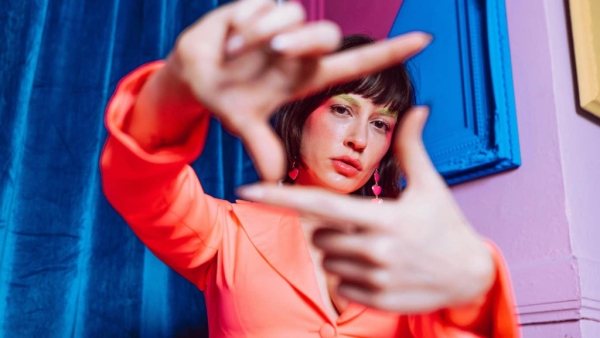
Reality TV shows have claimed their own niche in the world of entertainment, and “Love Island” has made quite a name for itself among them. It’s no surprise that the show has garnered such a large following with the drama it promises. The question is: Is this drama as interesting as it once was, or have newer contestants made it difficult to enjoy?
“Love Island” has been airing in the U.K. for over a decade, so it has cycled through some different generations of contestants. Now, as Gen Z takes over the villa, some viewers are worried about the impression they’re making on the rest of the world.
One TikToker who goes by the username @existentialgay thinks that the transition from millennial contestants on the show to Gen Zers is hurting it because Gen Z just can’t be themselves. “Their vocabulary is very limited, and the communication actually seems very stunted,” she said.
“And I’m not just trying to throw shade,” she assured. “I think this is the, like, result of several things, including the timing of the COVID pandemic and the rise of, like, being internet natives and, like, social media.”
According to her, this makes for a pretty poor reality TV viewing experience. “Everyone is playing nonchalant, everyone is so hyper aware of being filmed and their image, both physically and emotionally, and nothing feels, like, authentic or messy. Right?” she questioned.
Meanwhile, she compared this to millennials, who really could bring the drama to the unhinged level such a show calls for. “And millennials are known for being, like, really cringe and overly sincere and overly emotional, which all makes for good reality TV and makes them a good fit for something like ‘Love Island,’” she said.
: Love Island USA’s Vanna Has People Questioning How Empowering The Normalization Of Cosmetic Work Really Is
Another TikTok user named Kevin G. Christy offered his own thoughts on the subject. “We’re not watching a dating show anymore,” he insisted. “What we’re watching now is the practical application of the effect social media, dating apps, and armchair mental health medicine have had on Gen Z.”
“These kids don’t know how to interact with each other, themselves, how to fall in love,” he continued. “There’s three entities in every connection. Them, the other person and their bizarre perceived concept of how they’re being viewed by an unnamed outside entity that they’re reacting to like they’re in the room the whole time. It is wild and confusing.”
It makes sense that Gen Z would struggle in this kind of situation. They are so used to being seen by others that they can’t just act like themselves on a show where they’re supposed to do exactly that.
: Study Shows Gen Z Doesn’t Travel Because They’d Rather Stay Home With Their Pets
Writing for Fast CompanyMelanie Gaboriault shared her own perspective as a mother of three Gen Zers. She noted, “Despite the fact that connection is mainly happening behind a screen, Gen Z is more connected than any generation before them. They like to have control over when and how they communicate.”
Polina Tankilvitch | Pexels
The fact that Gen Z tries to so carefully curate and control their communication is evident on shows like “Love Island.” Gen Z contestants can’t just be themselves and act naturally because they know they’re being watched. They are used to it on social media constantly. They fear being perceived a certain way because of the internet, and they can’t escape the worry that comes with that.
Gen Z understands what it means to be watched and judged. They take this knowledge with them everywhere they go, including places where they are supposed to act natural and at ease. Unfortunately, it has created a great hindrance for them to show up as their authentic selves.
: Gen Z’s Love Of Y2K Aesthetics Has Them Finally Embracing ‘Millennial Cringe’ With This Once Obsolete Accessory
Mary-Faith Martinez is a writer with a bachelor’s degree in English and Journalism who covers news, psychology, lifestyle, and human interest topics.